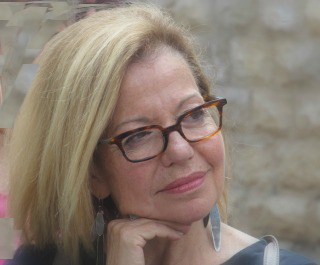 Support for boycotts, divestment, and sanctions (BDS) targeting Israel is growing, generating
great angst and solution-searching amongst Israel supporters – including pro-peace progressives – in the United
States and elsewhere in the world. From the Adelson-Saban summit earlier this year, which gave
birth to a new anti-BDS organization (to be
led by someone who for years headed a far right-wing, pro-Israel, Evangelical Christian operation), to
Democratic presidential candidate
Hillary Clinton’s letter to Jewish leaders, BDS is now being treated even by many pro-peace progressives as the
new “existential” threat to Israel, despite the fact that the actual track record of the BDS movement, in terms of
concrete impact, is thus far mixed.
Support for boycotts, divestment, and sanctions (BDS) targeting Israel is growing, generating
great angst and solution-searching amongst Israel supporters – including pro-peace progressives – in the United
States and elsewhere in the world. From the Adelson-Saban summit earlier this year, which gave
birth to a new anti-BDS organization (to be
led by someone who for years headed a far right-wing, pro-Israel, Evangelical Christian operation), to
Democratic presidential candidate
Hillary Clinton’s letter to Jewish leaders, BDS is now being treated even by many pro-peace progressives as the
new “existential” threat to Israel, despite the fact that the actual track record of the BDS movement, in terms of
concrete impact, is thus far mixed.
By Yariv Oppenheimer is the secretary-general of Peace Now. This article appeared first on November 20, 2015 in Ynet.com T
he Paris attacks cannot justify for a minute our ongoing control of the Palestinians and do not make the vision of a bi-national state any better for Israel.
If the Islamic State members could, they wouldn't hesitate to hurt Palestinian President Mahmoud Abbas too and behead him. As far as the radical Islam created by ISIS is concerned, the Palestinians and their leadership are heretics too.
A recent article in Foreign Affairs by Brookings fellow Natan Sachs is getting a lot of attention: Why Israel waits: Anti-Solutionism as a strategy. (Full disclosure: Sachs is a friend and someone for whom I have great professional respect.)
The piece offers some valuable insights into how Israeli Prime Minister Benjamin Netanyahu and those around him
justify their approach on national security issues. However, the analysis suffers from an important omission with
respect to the Israeli government's approach to the Palestinians, and offers a policy recommendation that, if
adopted, would be disastrous.
Rejecting any claim that settlements play a part in the current violence, Netanyahu has adopted data showing
he's built less than his predecessors. But don't believe the statistics.
The Obama Administration enters its final 14 months in office with the Israeli-Palestinian conflict escalating into daily bloodshed. This crisis is taking place to a backdrop of a fatally discredited peace process, a political clock ticking down toward American elections, and an international community awaiting direction and leadership from a White House that is providing neither. More broadly, it is taking place to the backdrop of Israeli policies - including settlement expansion, demolitions, and coercive displacements - that disclose an unmistakable drive to implement a one-state outcome, notwithstanding Israeli Prime Minister Benjamin Netanyahu's continued (if weak and intermittent) rhetorical support for a two-state solution.
It is now self-evident that Israeli-Palestinian peace will not be achieved on President Obama's watch, nor will meaningful progress towards a peace agreement come from another round of negotiations. In this context, the Obama Administration has three options: walking away, playing it safe, or charting a new course.
Like all Israelis of my generation, I remember the night of Nov. 4, 1995.
Having just heard from the news desk editor at Israel’s Haaretz newspaper that Prime Minister Yitzhak Rabin had been shot, I called Palestinian officials for reaction. I was Haaretz’s Palestinian affairs correspondent at the time and was on the phone with Palestinian negotiator Saeb Erekat when I heard on Israel Radio that Rabin’s spokesman was about to make a statement. As Eitan Haber hushed the crowed, I started translating for Erekat: “The government of Israel announces in dismay, in great sadness, and in deep sorrow, the death of Prime Minister and Minister of Defense Yitzhak Rabin, who was murdered by an assassin, tonight in Tel Aviv.”
 Since the eruption of the current wave of horrific violence in Israel and the West Bank, we have
issued a number of formal statements responding to the escalation. I've wanted to send you a personal message as
well . . . but I've waited.
Since the eruption of the current wave of horrific violence in Israel and the West Bank, we have
issued a number of formal statements responding to the escalation. I've wanted to send you a personal message as
well . . . but I've waited.
In times like this – when there are numerous attacks against civilians every day, when two thirteen-year-old boys are lying in the street bleeding, when Israelis and Palestinians are afraid to walk out of their homes, terrified that they will be the next victim of random violence – it is hard to write from the heart and not from the guts.
 On Wednesday (Sept. 23) as Jews end their Yom Kippur fast, Muslims will begin the Eid al-Adha
holiday. Imam Haytham Younis and Rabbi Alana Suskin met for coffee and then exchanged the following email
dialogue about the two holidays’ convergence and the meaning of a shared story that lies at the
intersection of both faiths.
On Wednesday (Sept. 23) as Jews end their Yom Kippur fast, Muslims will begin the Eid al-Adha
holiday. Imam Haytham Younis and Rabbi Alana Suskin met for coffee and then exchanged the following email
dialogue about the two holidays’ convergence and the meaning of a shared story that lies at the
intersection of both faiths.
Suskin: It is a rare occurrence for Yom Kippur (the Day of Atonement) and Eid al-Adha (the Feast of the Sacrifice) to fall back-to-back, but seems appropriate somehow. Just a week ago, on Rosh Hashanah, we read the Torah portion relating the story of Abraham’s sacrifice of his son — the Jewish perspective of the same story that underlies Eid al-Adha. For Jews, this is the story of the sacrifice of Isaac at God’s command (stopped, of course, at the last moment, by an angel sent by God).
Younis: Yes. Eid al-Adha similarly commemorates the obedience of Abraham and his son to the command of God in fulfilling the sacrifice, as well as the observance of the pilgrimage to the House of God (the Kaaba) in Mecca, which, we believe, was established by Abraham. According to the Quran, the son involved in the sacrifice however, was Ishmael, not Isaac.
APN's Ori Nir in The Guardian: The best hope for change on the West Bank? Keep those cameras rolling
You have probably watched the viral video of the Palestinian women snatching a Palestinian child from the hands of an Israeli soldier, as he was trying to arrest the boy for rock-throwing.
If you missed it, no worries: as long as Israel’s occupation of the West Bank continues, you will have many more opportunities to watch similarly disturbing images. Because as long as the occupation continues, and combat soldiers are sent to police an occupied hostile civilian population, this ugliness is unavoidable.
The murders of toddler Ali Dawabsha and his father Saed generated an uproar. The fire set to the house in the Palestinian village of Duma with its dwellers inside, led to the death of two and the mortal injury of two others. However, this horrid act was not committed in a void. Since 1999, when the illegal outposts began appearing in the nearby “Shiloh Valley,” the region has undergone a process of increased Israeli control and Palestinian ousting.
This objective is often achieved through violence as a political tool for altering the status quo in favor of the settlers. This process is made possible, inter alia, by the fact that the region is a lawless area. Throughout the years, wild outposts’ settlers have enjoyed ongoing support from the authorities, whether by act or omission: a local authority allocating financial support, government offices build and provide infrastructure, enforcement agencies avoid enforcing the planning and construction laws, security forces do not only protect illegal outpost settlers but also help them remove Palestinians from the farmlands, even when it is their personal land. Changes in this area in the years after the wild outposts were established demonstrate that the settlers’ presence in the area leads to ongoing thievery and acts of violence.